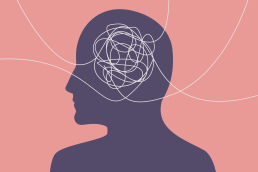International Women’s Day – Why It Matters
Celebrated internationally on March 8 since 1914, International Women’s Day continues to be a special day dedicated to recognising and honouring the contributions of women to all spheres of life.
Women’s accomplishments in the economic, social, cultural and political dimensions of human life are substantial, which is why International Women’s Day is such an important historical day.
The many rights and privileges we take for granted today were hard-fought and won by earlier women leaders who observed and experienced injustices. These women sought change and worked hard to obtain the civil liberties that we don’t think twice about today. These include suffrage, the right to choose one’s spouse, birth control, the right to an education and a career, the right to wear what we want (including pants), and many others.
What was once called “National Woman’s Day” and took place in New York on February 28, 1909, was organised by the Socialist Party of America. It was led by Theresa Malkiel, a well-known socialist leader who championed women’s labour rights, suffrage and immigrant women’s issues.
Of course, before Malkiel and the other leading women leaders of that period, the likes of Elizabeth Cady Stanton and Lucretia Mott, Elizabeth Blackwell, Sojourner Truth and Susan B. Anthony already made their marks on the history of feminism.
Important milestones
From the first celebration of women’s accomplishments and continuing fight for gender equality, women have accomplished important milestones, including:
– Women’s suffrage (1920)
– Birth control pill (1960)
– Equal pay (1963)
– Law against discrimination (including gender – 1964)
– Law against violence against women (1994)
Aside from these, individual women from all over the world have been honoured for their achievements in different fields, including aviation, engineering, politics, sports, space exploration and military service.
The struggle continues
The continuing fight for women’s rights and gender parity has led to a reduction in the gender pay gap. However, women still earn only about $0.79 for every dollar a man makes. In Australia, women earn $242.90 less per week compared to men.
Care work is also another major area of struggle for women globally, especially in less developed countries where literacy rates among females tend to be lower. Care work involves care services done attending to the needs of other people, such as members of one’s family. Care work is unpaid, and it includes caring for one’s children, siblings, parents and spouse. Even paid care or domestic work is poorly paid due to the low value people place on care work.
This needs to change, and women are fighting for the recognition of the huge contribution of care work in maintaining the productivity of family members who are formally employed. Women also continue to fight for many rights a lot of women in less developed countries, and conflict areas are deprived of, such as the right to an education, protection against abuse or exploitation, freedom from the control of male family members, and others.
Change is happening, but not fast enough for millions of women struggling around the world.
International Women’s Day is, therefore, symbolic of both the victories and struggles of women everywhere, so the fight continues.
Related Posts
5 reasons why people are choosing to work for SME’s over large corporations
Small and medium-sized enterprises (SMEs) employ over 44 per cent of Australia’s workforce, and this number is only…
4 reasons why hiring a contractor can make or break your holiday season
Are you running to the finish line but there are simply too many hurdles? This is a situation many people find…
Can you afford the cost of a bad hire?
No company sets out to make bad hires, but a staggering 95% of businesses make lousy hiring decisions every year. For…
Silent Struggles: Men’s Mental Health at Work
As International Men's Health Week approaches, it is essential to shed light on the often-overlooked issue of men's…
From Hiring to Inspiring: Why HR is the Ultimate Career
HR is a dynamic and rewarding field that involves managing the most important asset of any organisation – its people.…
Laying off employees during tough economic times is often seen as a necessary evil for many companies. While it may be…
Since the pandemic, hiring trends in Australia’s job market have undergone a dramatic shift. How can you ensure you’re…
How to get into an entry level HR role
When you look at all the experience and education many HR roles require, it’s easy to feel discouraged. If you’re…
How to bounce back after a career break
Almost one million Australians lost their job in the wake of the pandemic. Between lockdowns, restrictions,…
Corporate wage theft: why it happens and how to prevent it
Here’s an overview of the current issues around corporate wage theft, what’s causing the underpayments, and how you can…








